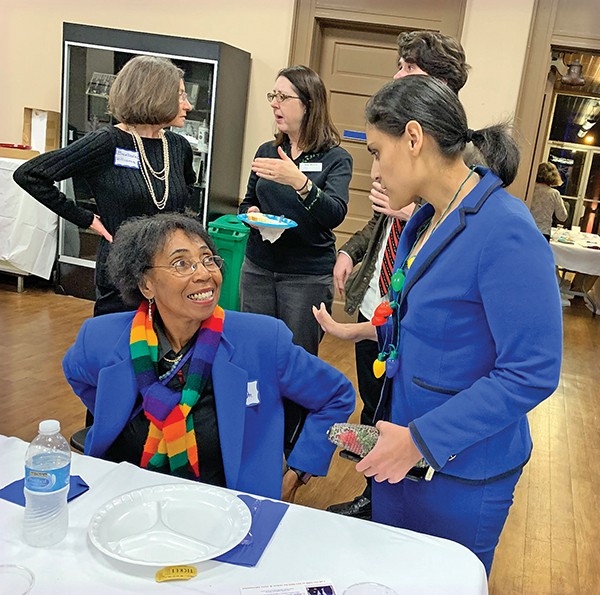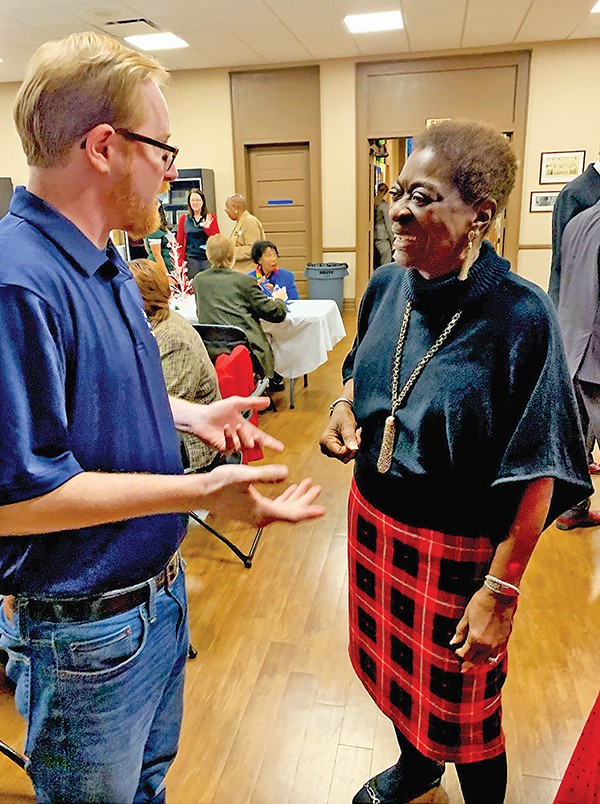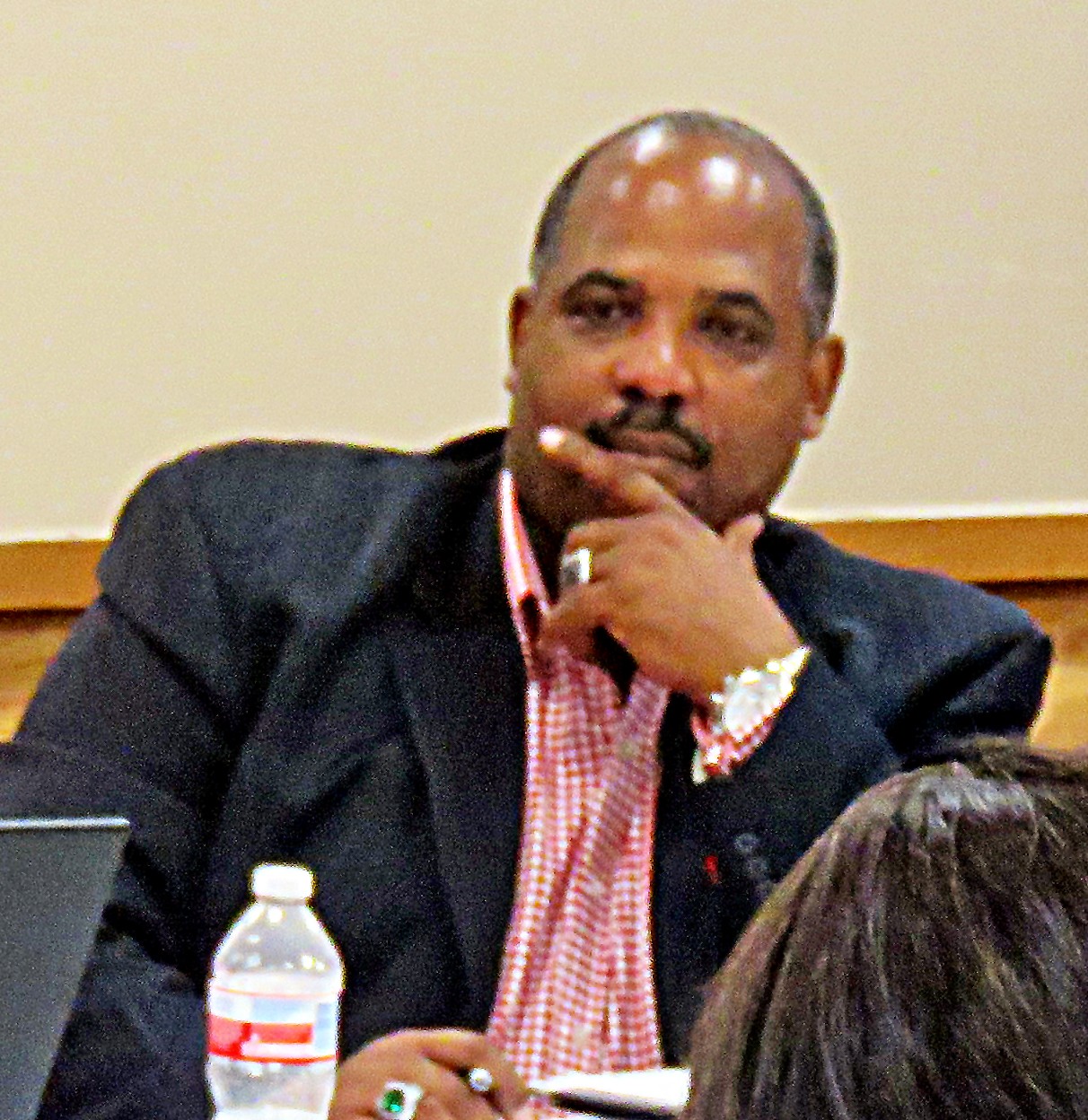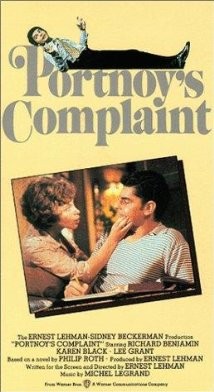Ready? Deirdre V. Fisher, Eddie Jones, Gortria Anderson Banks, John Ford, Paul Boyd, Rheunte E. Benson, Thomas Long, Del Gill, Joe Brown, Tanya L. Cooper, Tavia Tate, Adrienne Dailey-Evans, Michael Finney, Reginald Milton, George D. Summers, Lisa W. Wimberly, Wanda R. Faulkner.
Those 17 names represent just the first wave of applicants at the Shelby County Election Commission for the right to seek the post of General Sessions Court clerk, a post that has been held since 2011 by Ed Stanton Jr. (not to be confused with his son, lawyer Ed Stanton III, who received appointments from President Barack Obama both as U.S. attorney and later as a U.S. district judge, though his nomination for the judgeship was bottled up and kept from confirmation by Republican Senate Majority Leader Mitch McConnell).
The senior Stanton, a Democrat, was a longtime employee of county service before his selection by the General Sessions judges to fill a vacancy as clerk and his subsequent two re-elections in 2012 and 2016. Stanton, a solid sort, attracted few challengers as an incumbent clerk, but there are obvious reasons — foremost among them, perhaps, being the $134,986 annual salary — why the job, now open, has generated the current flood of office-seekers.
 Jackson Baker
Jackson Baker
District 97 Candidate Gabby Salinas (r)shmoozes with voter Sherry Compton; Another District 97 hopeful, Allan Creasy, chats up Norma Lester

Some of the candidates are neophytes. Others have names that are, how to put it — well-worn: Del Gill, Joe Brown, John Ford? Ford may not ultimately be eligible, inasmuch as his rights seem not clearly to have been restored since a felony conviction from the FBI’s Tennessee Waltz sting. Two current county commissioners are on the list of hopefuls — Jones and Milton. Long and Boyd have previously held clerkships. Of this early list of 17, all are Democrats except for Boyd, Finney, Summers, and Wimberly, who are Republicans.
So far, only seven of the petition-pullers have filed, but expect that number to grow, as will the number of new applicants asking for petitions.
• Meanwhile, the candidate field for state House District 97 is doing some multiplying as well. This is the seat in Bartlett/Eads that has been the bailiwick of longtime Republican incumbent Jim Coley, who decided to take his leave after a final term in which various ailments were incapacitating him. Two fellow Republicans have declared their candidacies for the job — John Gillespie, who works as a grant coordinator for Trezevant Episcopal Home, and Brandon Weise, an employee of the Shelby County Register’s office.
Gillespie made the first splash and has attached himself to Coley’s coattails, as well as to the Republican establishment in general, and lines up with a somewhat modified version of the education savings account bill (aka: voucher program) steamrollered into passage last year when then House Speaker Glen Casada, acting on Governor Bill Lee‘s behalf, kept the voting rolls open in the House long enough to to turn one legislator’s crucial nay note into an aye.
Weise stands in opposition to the voucher program, which would affect only Shelby County and Davidson County schools and would be likely to fall in behind new GOP Speaker Cameron Sexton of Crossville, who opposed the bill relentlessly last year and has indicated he would like to at least delay its immediate implementation. Weise, however, does observe Republican orthodoxy on matters such as opposition for federally funded Medicaid expansion and support for block grants to deal with health-care issues.
Democrats have their own contest pending in House District 97, with Allan Creasy, a narrow loser to Coley last year, making a renewed try for the seat. And another Democratic near-success story from 2018, Gabby Salinas, is also looking for another way into the General Assembly, after giving GOP state Senator Brian Kelsey a serious scare in his re-election race last year.
Both candidates see themselves as still having hot hands and ready-to-go constituencies. Before taking on Kelsey, Salinas had been able to turn on a head of steam to defeat David Witherspoon, a well-supported candidate and an early favorite in the Democratic primary. Salinas has the benefit of an affecting backstory regarding her childhood pilgrimage to the United States from Bolivia with her family in order to seek treatment for her at St. Jude Children’s Research Hospital. A personal endorsement by Marlo Thomas of St. Jude, daughter of the institution’s founder, Danny Thomas, proved helpful to Salinas’ candidacy.
Both Creasy, a popular manager and bartender at Celtic Crossing restaurant in Cooper-Young, and Salinas are opposed to the governor’s voucher legislation, and both also favor acceptance of federal Medicaid expansion funds under the Affordable Care Act. Both were much in evidence pressing the flesh at Sunday’s annual Democratic Women’s Christmas party at the IBEW headquarters building on Madison.
After several years in which Democrats figured only as sacrificial lambs in suburban legislative districts, the fact of having competitive primaries in such districts has the party faithful both nervous and excited.
• At its regular monthly meeting on Monday, the Shelby County Commission: 1) approved with near unanimity the use of PILOT (payment-in-lieu-of-tax) rents in the Pinch District TIF area by the Center City Revenue Finance Corporation, contingent upon the developer’s complying with CRFC requirements that not less than 28 percent of spending on construction will go to minority vendors; with the same requirement being imposed on the ongoing Union Row project; 2) voted to resolve a work-overload issue in the Register of Deeds office by approving two new full-tme positions and three temporary positions; 3) approved an add-on funding formula to enable additionl capital improvement projects at municipal schools; 4) agreed to hear in committee a proposal by Commissioner Van Turner for a MATA Capital Funding Ordinance to codify Shelby County’s commitment to transportation needs.

 JB
JB 
